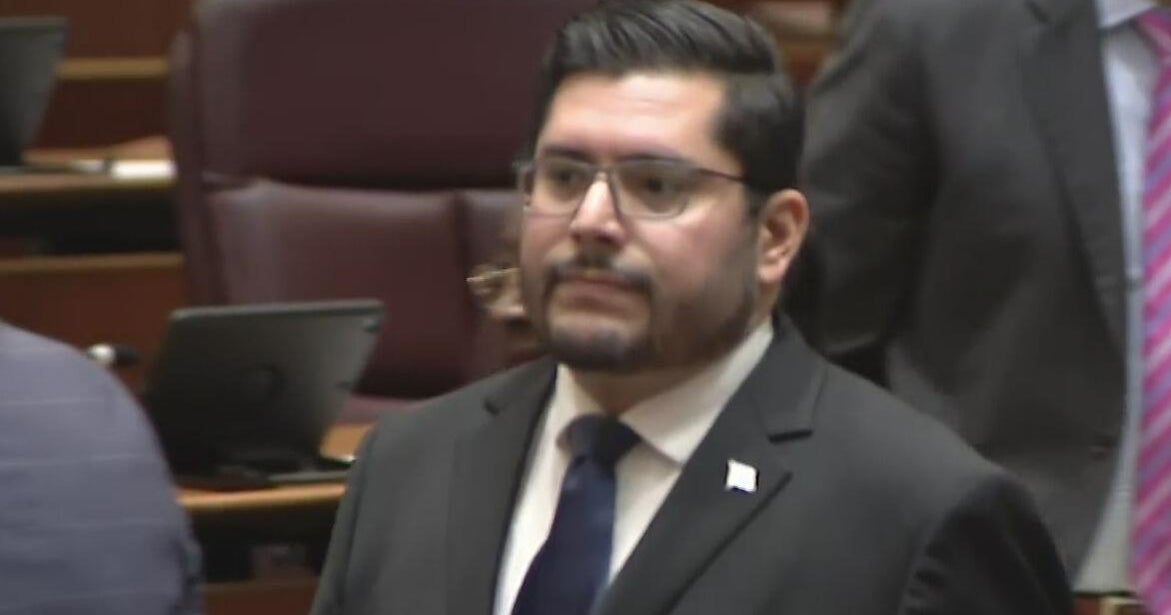ACLU, aldermen have doubts about Mayor Lightfoot's curfew and Millennium Park restrictions, downtown police deployments
CHICAGO (CBS) -- Leaders are scrambling to find a way to curb the downtown chaos caused by large groups of kids – which resulted in a 16-year-old boy being shot and killed in Millennium Park this past Saturday.
As CBS 2 Political Investigator Dana Kozlov reported, Mayor Lori Lightfoot announced Sunday that she is banning unaccompanied minors from visiting Millennium Park after 6 p.m. from Thursday through Sunday – effective this coming Thursday.
Lightfoot said she is signing an executive order to move the 11 p.m. curfew for children under age 18 on Friday and Saturday nights to 10 p.m. The 10 p.m. curfew on Sunday through Thursday nights will remain the same.
But some are questioning the legality of these moves, and others are expressing concerns about how bringing extra police to the Loop will impact other neighborhoods.
The mayhem in Millennium Park Saturday evening resulted in the murder of 16-year-old Seandell Holliday right outside the iconic Cloud Gate sculpture, or The Bean. It later spilled into other areas of downtown Chicago – fights were seen outside the Chase Tower, at Dearborn and Adams streets, and numerous other sites.
It all left police officers frantically calling for backup. And Ald. Brian Hopkins (2nd) said it left other areas – including the Near North (18th) police district, unprotected.
The Near North District starts just the other side of the Chicago River and extends north to Fullerton Avenue, bounded by Lake Michigan on the east and the North Branch of the Chicago River on the west.
"At one point, there were over 30 calls on the board waiting for police officers to respond to them – languishing for hours - and some of them were batteries in progress; robberies in progress," Hopkins said.
Hopkins is not the only alderman concerned about what diverting officers downtown will do to overall city safety – especially now that Mayor Lightfoot has announced the new rules with regard to minors in Millennium Park and the earlier weekend curfew.
"Now I want to be clear – it gives me no pleasure to impose these rules and restrictions," the mayor said.
Lightfoot said the ban will be strictly enforced. But that is where details get fuzzy.
"There is a lot of vague language in the mayor's announcement," said American Civil Liberties Union attorney Alexandra Block.
Block questions whether the mayor can actually do those things.
"We don't know what legal justification the mayor is invoking to make this announcement," Block said. "It's not clear that she has the authority to unilaterally change the City of Chicago's curfew ordinance."
Lightfoot says the park ban is a legal time, place, and manner restriction allowed by U.S. Supreme Court precedent. The curfew change is not as clear.
"I have a lot of respect for the ACLU, but here on planet earth – in reality – we have a crisis in our city, and we have to take action," Mayor Lightfoot said.
Still, several aldermen - who agree something needs to be done – say only the City Council can change the curfew law. They say the mayor's action could leave the city open to a lawsuit.
Many also believe Mayor Lightfoot should take Gov. JB Pritzker up on his offer to send Illinois State Police troopers to the city to help.




